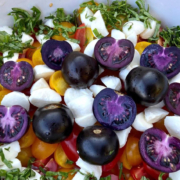EPA Call for Information on glyphosate, September 2021
Summary of our submission
A GLYPHOSATE RISK ASSESSMENT IS NEEDED URGENTLY
We welcome the opportunity to respond to this Call for Information on glyphosate.
We submit that Aotearoa New Zealand urgently needs a genuine risk assessment of glyphosate and glyphosate-based herbicides (commercial products containing glyphosate and other chemicals) that are being sold and used in this country.
New Zealand has never conducted a risk assessment of glyphosate-based herbicides (GBHs). This Call for Information effectively delays the long overdue risk assessment of GBHs
This delay pushes back appropriate regulatory measures that might be enacted as a response to risk assessment to protect health.
SURVEY OF COUNCIL USE OF GLYPHOSATE
Our submission includes survey information collected from territorial and regional authorities around the country about their current use of GBHs.
This survey demonstrates both the widespread use of GBHs and the increasing community pressure to eliminate GBHs
THERE ARE KNOWN HEALTH RISKS FROM GLYPHOSATE
There are known health risks of GBHs to humans, domesticated animals, and to aquatic and terrestrial wildlife.
We provide evidence of these risks our submission document.
Given its widespread use, producers and consumers cannot be confident they’re avoiding GBH health risks under the current regulations.
We urge the government to take a strict precautionary approach.
GLYPHOSATE USE LEADS TO INCREASING HERBICIDE RESISTANCE
Herbicide resistance – including resistance to GBHs – is a growing problem globally and here in New Zealand.
Herbicide resistance is leading to the use of several different herbicides together or in rotation.
Farmers and growers (conventional as well as organic) are increasingly seeking safe non-chemical weed management options.
Organic producers are able to successfully employ a range of non-toxic methods of weed management, reducing herbicide resistance pressure
ECONOMIC RISKS OF GLYPHOSATE-BASED HERBICIDES
International demand for safe, healthy food is strong and growing. Our international markets are extremely sensitive to pesticide residues.
For example Japan has rejected New Zealand honey imports this year due to glyphosate residues.
SOIL & HEALTH’S GLYPHOSATE PETITION
We need our Government to hear our concerns, and to that end have established a petition. For further information, and to sign the petition, please see here.
Supporters of our petition are calling on the government to:
- Ban the use of glyphosate in public places and around waterways;
- Ban foliar sprays (pre-harvest) of glyphosate formulations on human and animal feed crops; and
- Conduct a first-ever risk assessment of the active ingredient glyphosate, and the retail formulation sold in shops, using independent published and openly available scientific data.
OUR FULL SUBMISSION
Included in our submission are
- This summary (PDF);
- Our fully referenced submission document, responding to specific questions in the Call for Information. (PDF)
- Our collated data on GBH use by councils (PDF).
- Evidential papers
- Pesticide Toxicity Hazard of Agriculture: Regional and Commodity Hotspots in Australia (PDF)
- Pesticide mixtures in soil: a global outlook (PDF)
- The global environmental hazard of glyphosate use (PDF
- Pesticide residues in European agricultural soils – A hidden reality unfolded (PDF)
- Distribution of glyphosate and aminomethylphosphonic acid (AMPA) in agricultural topsoils of the European Union (PDF)
- Organic Farming Lessens Reliance on Pesticides and Promotes Public Health by Lowering Dietary Risks (PDF)




